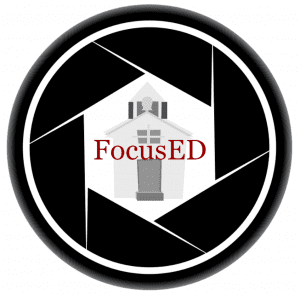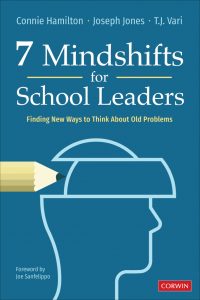
Season 3, Episode 11 of FocusED with Tom Hoerr #FocusED
This is Season 3, Episode 11 of FocusED, and it features our guest, Thomas Hoerr. It was originally recorded live for a studio audience in Delaware, provided as a professional development experience for Delaware teachers and leaders. Don’t miss what Tom says about leading for empathy…and so much more.
_______________________________________
Thomas Hoerr Brings Tons of Experience to FocusED Listeners
Dr. Tom Hoerr led schools for 37 years and is currently a Scholar In Residence at the University of Missouri-St. Louis, teaching in the Educational Leadership and Policy Studies program. His newest book, The Principal As Chief Empathy Officer: Creating A Culture Where Everyone Grows, shows the role of empathy in relationships in leadership. Hoerr believes that we can all grow our empathy.
Hoerr currently writes a monthly leadership blog for ASCD and wrote a monthly column, “The Principal Connection,” from 2004 to 2018. His previous two books focused on the importance of SEL to students and staff (Taking Social Emotional Learning Schoolwide and The Formative Five: Fostering Grit, Empathy, and Other Success Skills Every Student Needs). Hoerr has written four other books, more than 170 articles, and has presented at schools and conferences around the world on grit, leadership, multiple intelligences, faculty collegiality, empathy, and the Formative Five.
___________________________________________________
FocusED Show Notes with Thomas Hoerr
People value their leader, not because of what they know, but because of the relationship they have.
Joe asked about strategies that leaders can employ to become more empathetic. Don’t miss the three things that Tom talks about.
Leaders should always explain why they’re doing something, not just what they’re doing.
Part of growing your empathy is knowing what you don’t know. ~ Tom Hoerr
Tom emphasized the power in creating scenarios for professional dialogue.
Don’t miss how Tom defines “empathy conversations” and the need for them.
Dr. Hoerr addresses the problem with our political and social bubbles and how they prevent empathy. Let’s talk about the bubble! Naming it is the first step to widening perspective.
You want to hear what Tom says about the 5:1 positive interaction ratio…for adults and students.
Tom talked about writing empathy goals at the start of every year.
Dr. Hoerr belongs to a book group, and he’s the only educator. A major theme from the podcast is about getting out of your comfort zone and gaining perspective as a school leader.
Thanks for listening to FocusED, an educational leadership podcast brought to you by TheSchoolHouse302 where we publish free leadership content. Go to the site, subscribe, and you’ll get all of our content sent directly to your email.
FocusED is your educational leadership podcast where our mission is to dissect a particular focus for teachers and school leaders so that you can learn to lead better and grow faster in your school or district with more knowledge, better understanding, and clear direction on what to do next.
This episode was brought to you by GhostBed, a family-owned business of sleep experts with 20+ years of experience. With 30K+ 5-star reviews, you can’t go wrong with GhostBed. Their mattresses are handcrafted, and they come with a 101-night-at-home-sleep trial. For a limited time, you can get 30% by using our code — SH302 — at checkout. And, even if you tell someone about GhostBed, you can earn a $100 referral reward. Go to Ghostbed.com today and use SH302 at checkout.









 7 Mindshifts for School Leaders: Finding New Ways to Think About Old Problems.
7 Mindshifts for School Leaders: Finding New Ways to Think About Old Problems. 


